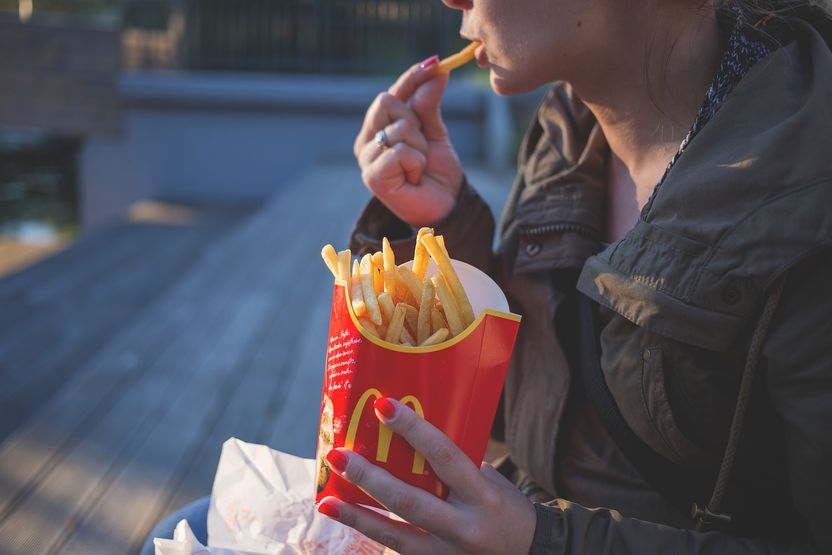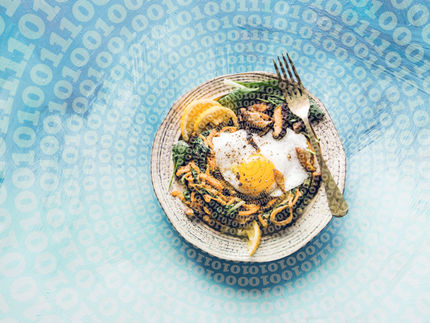Fast food, organic food and energy drinks: New data on dietary behaviour
The Robert Koch Institute (RKI) has published new data on dietary behaviour in the Journal of Health Monitoring, with a focus on children and adolescents.

Pexels/ Pixabay
The data source is the second ‘Eating study as a KiGGS Module’ (EsKiMo II). As an important compo-nent of health monitoring at the RKI, KiGGS is the regularly conducted comprehensive study on the health of children and adolescents in Germany. As emphasised by Professor Lothar H. Wieler, President of the RKI: ‘The health of children and adolescents is vitally important because the foundations of adult health are laid in childhood and adolescence. The data are the basis for recommendations for preventive measures’.
The second wave of the EsKiMo study was conducted between 2015 and 2017, following the first wave in 2006. The published data focus on the consumption of fast food, ener-gy drinks and organic food. The integration of the study into KiGGS makes it possible to analyse associations with numerous sociodemographic characteristics and lifestyle fac-tors.
Population-based studies on organic food consumption are scarce. EsKiMo II provides up-to-date data on the consumption of organic food by children aged six to eleven. In total, 63.2% of children eat organic food. The daily food intake of this group of children includes an average of 8% organic food. The higher the family’s socioeconomic status, the higher the proportion of organic food consumed. No differences were observed in regard to sex or age.
Fast food is usually rich in fat, contains high amounts of highly processed carbohy-drates, and is rich in salt and hidden sugars. As a consequence, it is regarded as un-healthy. 23% of 12- to 17-year-olds reported a high consumption of fast food. These ‘high consumers’ show differences according to sex, age, socioeconomic status, type of school, community size and media consumption. For example, the proportion of energy from fast food increases with age while it decreases with a higher socioeconomic status of the family. The energy that girls get from fast food has hardly changed over the last decade (125 and 126 kilocalories per day, respectively), while the corresponding figure for boys has decreased markedly (from 252 to 188 kilocalories per day). Professor Wieler emphasises: ‘One thing is clear: That is not enough. In view of public health, fast food consumption should be further reduced’.
The data on caffeine intake from energy drinks is also interesting, as these contain more than twice as much caffeine as standard cola beverages. Excessive caffeine intake can lead to side effects such as nausea and anxiety. EsKiMo II shows that almost 25% of 12- to 17-year-olds who consume energy drinks exceed the caffeine limit recommended by the European Food Safety Authority with energy drinks alone.
In addition to the EsKiMo II data, the Journal of Health Monitoring 1/2020 includes an article on adults and their use of canteens offering healthy food choices. GEDA 2014/2015-EHIS is the first study to present data on this issue from a public health per-spective.
Most read news
Organizations
Other news from the department business & finance

Get the food & beverage industry in your inbox
By submitting this form you agree that LUMITOS AG will send you the newsletter(s) selected above by email. Your data will not be passed on to third parties. Your data will be stored and processed in accordance with our data protection regulations. LUMITOS may contact you by email for the purpose of advertising or market and opinion surveys. You can revoke your consent at any time without giving reasons to LUMITOS AG, Ernst-Augustin-Str. 2, 12489 Berlin, Germany or by e-mail at revoke@lumitos.com with effect for the future. In addition, each email contains a link to unsubscribe from the corresponding newsletter.






























































